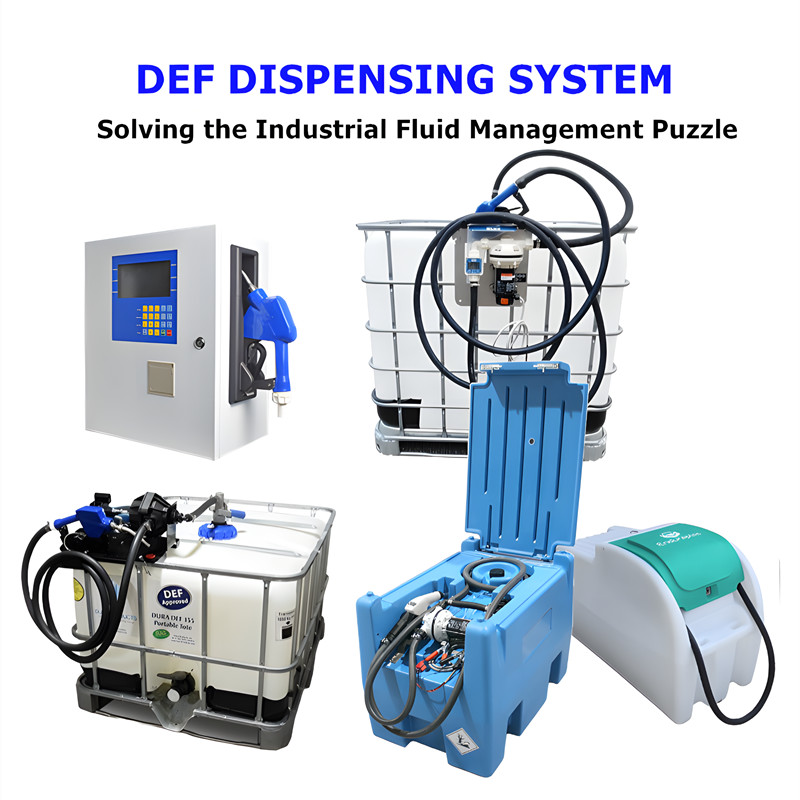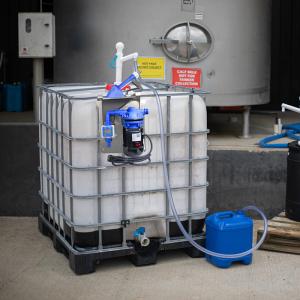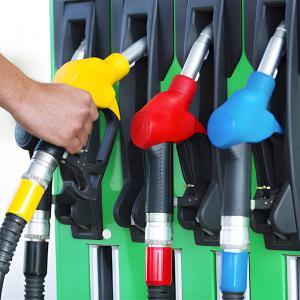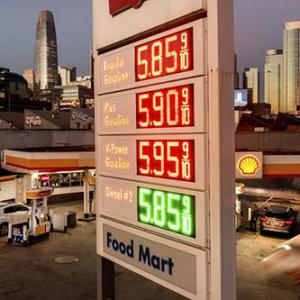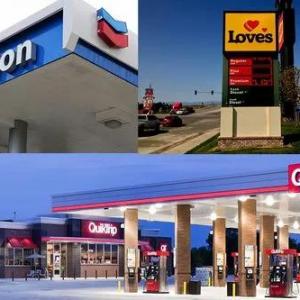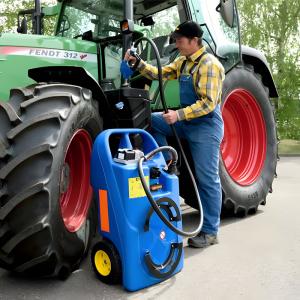Guide to DEF Dispensers & DEF Pumps: Solving the Industrial Fluid Management Puzzle
The Ultimate Guide to DEF Dispensers & DEF Pumps: Solving the Industrial Fluid Management Puzzle
For managers overseeing bustling construction sites, sprawling agricultural operations, or high-mileage logistics fleets, the management of Diesel Exhaust Fluid (DEF) can be a significant, yet often overlooked, drain on your profits. Inefficient refueling of dispersed equipment, hazardous spills from manual handling, and chaotic paper-based records create a host of problems. These issues not only inflate operational costs but also introduce serious safety risks and can even lead to catastrophic failures of expensive Selective Catalytic Reduction (SCR) systems.
This in-depth guide is for you. We will explore how intelligent DEF Dispenser and DEF Pump solutions can transform your fluid management from a costly headache into a streamlined, safe, and highly efficient operation, putting an end to these challenges for good.
The Four Core Challenges of DEF Dispensing and Management
Effectively managing your Diesel Exhaust Fluid (DEF) inventory and distribution process is more complex than it appears. Most operational issues stem from four fundamental challenges that traditional, manual methods simply cannot solve.
Challenge 1: Extreme Inefficiency in Manual Dispensing for Dispersed Equipment
Picture this common scenario: a driver or operator needs to refill a piece of heavy machinery. They first have to locate a drum or tote of DEF, manually operate a hand pump, and carry a heavy container across a muddy construction site or a vast farm field. This process is repeated multiple times a day for dozens of vehicles and machines. The time wasted on this low-value task is staggering. Each manual refill can take significant time, directly impacting project timelines and reducing the productivity of your skilled labor. This is a classic operational bottleneck that, when multiplied across a fleet, represents thousands of dollars in lost efficiency annually.
Challenge 2: Costly Waste and Environmental Contamination from Spillage
Manual DEF dispensing is inherently imprecise. Without proper metering and automated shut-off nozzles, spills are not a matter of if, but when. Diesel Exhaust Fluid, while not classified as hazardous, is corrosive to certain materials like carbon steel, aluminum, and zinc-coated surfaces. More importantly, when DEF spills and dries, it leaves behind crystallized urea deposits that can contaminate soil and require costly cleanup. These spills represent:
-
Direct Financial Loss: Every drop spilled is money wasted.
-
Environmental Liability: Spillage can violate environmental regulations, potentially leading to fines.
-
Equipment Damage: The corrosive nature of DEF can damage vehicle paint and unprotected components over time.
Challenge 3: Chaotic Record-Keeping, Cost Allocation, and Inventory Management
When relying on handwritten logs or, worse, no tracking system at all, you have zero visibility into one of your key fluid consumables. This leads to a logistical nightmare:
-
Inaccurate Cost Allocation: You cannot accurately assign DEF costs to specific projects, departments, or individual vehicles, making true operational cost analysis impossible.
-
Inventory Chaos: Without real-time data, you risk either running out of DEF and causing operational downtime or overstocking and tying up capital in unnecessary inventory.
-
Accountability Gaps: The lack of tracking creates opportunities for undocumented loss or misuse of DEF, making it difficult to maintain accountability.
Challenge 4: Significant Safety Risks and Potential for Equipment Damage
In environments where flammable materials are present, such as fueling depots, mining sites, or repair workshops, safety is non-negotiable. Using non-certified electrical equipment for dispensing fluids can create a catastrophic ignition risk. Furthermore, the risk of contamination during manual handling is high. Introducing dirt, debris, or other fluids into a DEF tank can instantly damage a vehicle’s sensitive SCR system, leading to repairs that can cost upwards of $10,000 to $15,000 per vehicle.
How Our Intelligent DEF Pump Solutions Empower Your Business
Modern, intelligent DEF dispensing systems are engineered to directly solve these four core challenges. By integrating advanced technology with robust hardware, these solutions provide a secure, accurate, and efficient method for total fluid control.
Feature 1: Ultimate Precision Control with High-Accuracy Metering & IC Card Management
Our systems bring accountability and precision to every drop dispensed. The core of this technology is an integrated management system that works seamlessly:
-
Authorization: An operator must swipe an authorized IC card or enter a PIN to activate the pump. This ensures only trained personnel can dispense fluid.
-
Automated Recording: The system automatically records the operator ID, vehicle/equipment ID, date, time, and the exact volume dispensed for every transaction.
-
Seamless Integration: This data can be exported effortlessly, eliminating manual data entry and allowing for direct integration with your accounting or fleet management software. The result is metering accuracy of up to ±0.5% and a complete, auditable trail of your DEF consumption.
Feature 2: Uncompromising Safety with Explosion-Proof Certification & Corrosion-Resistant Materials
Safety is our paramount concern, especially in high-risk environments. Our DEF pump solutions are built to the highest international safety standards.
-
Certified for Hazardous Locations: Our equipment holds key certifications like ATEX and IECEx, making it legally compliant and safe for use in environments with explosive atmospheres (e.g., near fuel storage).
-
Durable, Non-Corrosive Construction: All wetted parts are constructed from high-grade materials like 316 stainless steel and specialized polymers that are inert to the corrosive properties of DEF, guaranteeing a long service life and preventing fluid contamination.
Feature 3: Modular, Mobile Designs to Conquer Any Job Site
We understand that no two operations are the same. That's why our DEF dispensers come in a variety of form factors to meet your specific needs:
-
Mobile Dispensing Carts: Perfect for workshops or smaller sites where equipment is brought to a central point.
-
Skid-Mounted Stationary Units: Ideal for creating a centralized refueling station at a fleet depot or farm headquarters.
-
Fully Integrated Mobile Tankers: The ultimate solution for servicing heavy machinery in the field, bringing the refueling station directly to the equipment.
Case Study: How a Major Logistics Fleet Cut Operating Costs by 15%
A logistics company with a fleet of 200 long-haul trucks was struggling with manual DEF management. They faced inaccurate inventory, an estimated 8% annual loss from spillage and unaccounted usage, and excessive labor hours spent on manual refueling.
By implementing our intelligent DEF dispensing stations at their main depots, they achieved a remarkable turnaround. The IC card system eliminated unauthorized use and provided precise data for cost analysis. The automated nozzles and high-accuracy meters reduced fluid waste to less than 1%. Drivers could refuel their DEF tanks in a fraction of the time. Within 12 months, the company reported a 15% reduction in total DEF-related operational costs, a result of a 7% decrease in fluid waste, a 5% saving in labor, and a 3% reduction in administrative overhead.
The 5 Key Factors for Choosing an Industrial-Grade DEF Dispenser
When investing in a fluid management solution, it's crucial to look beyond the sticker price. Consider these five factors to ensure you acquire a system that delivers long-term value.
1. Flow Rate and Accuracy: The Foundation of Efficiency and Cost Control
A higher flow rate means faster refueling and less downtime. However, this must be balanced with accuracy. A system with a certified accuracy of ±0.5% or better ensures you are not giving away fluid or inaccurately billing projects.
2. Safety Certifications: The Uncompromising Bottom Line
If your operation involves any potentially flammable materials, explosion-proof certifications (ATEX, IECEx, UL) are not optional—they are a legal and ethical requirement. Always verify that a supplier's certifications are genuine and apply to the entire assembled unit, not just individual components. For more information on workplace safety standards, refer to official resources like the
3. Materials and Durability: The Key to a Long-Term ROI
An industrial dispenser is a long-term asset. Insist on robust construction with high-quality, corrosion-resistant materials like stainless steel for the housing and internal components. This prevents premature failure and protects your investment.
4. Intelligent Management Features: Your Key to Industry 4.0
The future of industrial operations is data-driven. A "smart" dispenser should offer more than just pumping. Look for features like user authentication, automated data logging, remote monitoring capabilities, and the ability to integrate with existing management software. This is your gateway to a truly connected and optimized operation.
5. Supplier Experience and After-Sales Support
Choose a supplier with proven experience in your industry. They will better understand your unique challenges and can recommend the right solution. Furthermore, inquire about their warranty, availability of spare parts, and technical support. A reliable partner is just as important as a reliable product.
Frequently Asked Questions (FAQ)
Q1: Do DEF dispensers require periodic calibration like Fuel pumps? A: Yes, absolutely. To maintain their high accuracy (e.g., ±0.5%), metering systems should be periodically checked and calibrated. The frequency depends on usage and regulatory requirements, but an annual check is a common best practice to ensure precise dispensing and accurate record-keeping.
Q2: How do your DEF pumps prevent the DEF solution from freezing in extremely cold climates? A: This is a critical consideration, as DEF freezes at 12°F (-11°C). We offer several solutions for cold-weather operations, including fully insulated and heated cabinets for the dispensing equipment and internal components. We can also equip the units with heated hoses to ensure the fluid remains in a liquid state from the tank to the vehicle, ensuring year-round operational reliability.
Q3: Can the system be integrated with our existing Fleet Management System (FMS) via an API? A: Yes. Our intelligent dispensing systems are designed for modern, connected fleets. They feature an Application Programming Interface (API) that allows for seamless data exchange with most leading Fleet Management Systems. This integration enables you to automatically sync DEF consumption data with vehicle mileage, engine hours, and driver information, providing a complete, holistic view of your fleet's operational efficiency.
